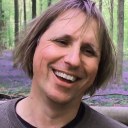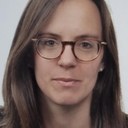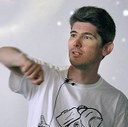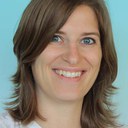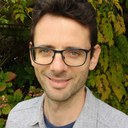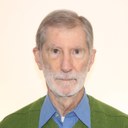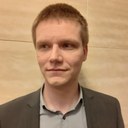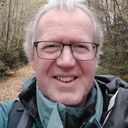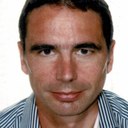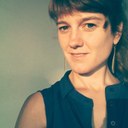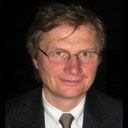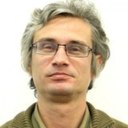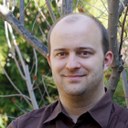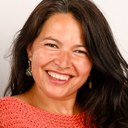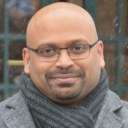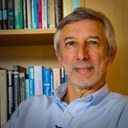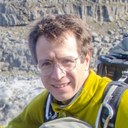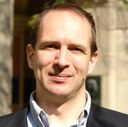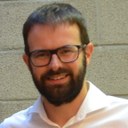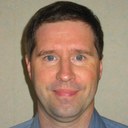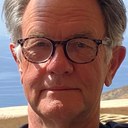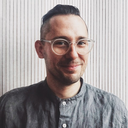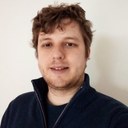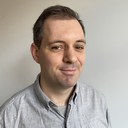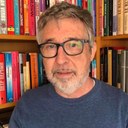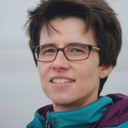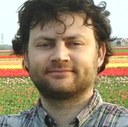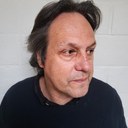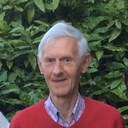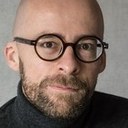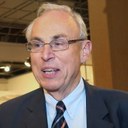Research Groups and Professors
Astronomy
- location: Sterre S9, 1st floor
The research of the UGent astronomy group concentrates on understanding the structure, origin and evolution of galaxies, with a particular focus on dwarf galaxies, the interstellar medium, and galaxy dynamics. The team uses both multi-wavelength observations and state-of-the-art numerical simulations, and is involved in the development of instrumentation for several new telescopes.
Maarten Baes
My research concentrates on multi-wavelength modelling of galaxy evolution, with a focus on the consistent comparison of models and observational data. This research heavily builds on the SKIRT radiative transfer code developed by our team. I am also involved in several observational and instrumentation projects, from X-ray to radio wavelengths.
Ilse De Looze
The research in my DustOrigin group revolves around the characterisation of the properties of interstellar dust and pinpointing the dominant dust production source during the early stages of galaxy formation to the present-day. Our group uses multi-wavelength observational datasets from state-of-the-art telescope facilities (e.g., MUSE, Herschel, ALMA, James Webb Space Telescope) and modelling methods with Bayesian inference techniques to interpret the dust emission and chemical evolution in galaxies.
Sven De Rijcke
Using numerical simulations, I try to replicate the formation and evolution of the smallest stellar systems in the universe, the dwarf galaxies. The goal is to test Lambda-CDM, which is our current best theory for cosmic structure formation. I use a combination of analytical and numerical calculations to study the physical processes that drive the secular evolution of disc galaxies (e.g. the origin of spiral arms).
Sharon Meidt van der Wel
My research is focused on how galactic dynamical factors influence the structure, organization and stability of the star-forming interstellar medium in galaxies. My approach combines theory with novel constraints from multi-wavelength observations of nearby galaxies obtained with state-of-the art facilities (ALMA, HST, JWST, ESO/VLT).
Arjen van der Wel
The common goal of our research projects is to empirically understand the formation and evolution of galaxies in a cosmological context. Large surveys such as CANDELS and LEGA-C provide us with the high-quality datasets needed to infer the physical properties of galaxies in the earlier Universe.
Herwig Dejonghe
After a lifetime of research in stellar dynamics (i.e. the dynamics of galaxies) and management functions at the UGent, I am now working on a very non-conventional model of our universe. Basically my thesis is that our universe is actually the inside of a truly gigantic black hole. I have also introduced the concept of “gravitational mirror”. More details can be found here. Currently, I am investigating the consequences of this model.
Frank Verheest (professor emeritus)
My research in plasma physics is focused on the theory and mathematics of nonlinear waves, with occasional applications in heliospheric, space and dusty plasmas. Contrary to the catchword in the research discipline, I have not worked on fusion plasmas.
Atmospheric Physics
- location: Sterre S9
Extreme weather events cause huge human and economic losses, a changing climate impacts all aspects of our society,... The research group Atmospheric Physics is investigating our atmosphere both by modeling and analysis of observations. Apart from research the team is organizing a postgraduate program on Weather and Climate Modelling.
Steven Caluwaerts
Our team conducts research on urban climate, high resolution weather forecasts and regional climate modelling. Apart from modelling we are also coordinating a citizen science network of about 80 weather stations. I am working both at Ghent University and at the Royal Meteorological Institute of Belgium and I care passionately about science communication.
Clemens Mensink
With my expertise on atmospheric modelling I'm happy to contribute to the postgraduate program on Weather and Climate Modelling. I'm passionate about teaching and working with people on projects that accelerate the transition towards sustainability.
Piet Termonia
My research focuses on numerical model development for weather and climate applications and climate impact studies.
Biophysics
- location: Campus Proeftuin, N3
The Biophysics group at Ghent University aims at solving problems in
the field of cardiac electrophysiogy. Our vision is to integrate
clinical and fundamental research on cardiac arrhythmia and
electrophysiology. For this we perform computer simulations, analyze
clinical and experimental data and combine these insights to unravel
the mechanisms of cardiac arrhythmia and propose new treatments.
Visit our websites
biophysics.ugent.be
and
www.dgmapping.com
.
Alexander Panfilov (professor emeritus)
Prof. Panfilov is an expert in computer simulations of cardiac arrhythmia.
Center for Molecular Modeling
- location: Technologiepark
The Center focuses on frontier research in six major areas - chemical kinetics in nanoporous materials, computational material research on the nanoscale, spectroscopy, many-particle physics, model development and bio- and organic chemistry.
Dimitri Van Neck
My research is focussed on the description and understanding of interacting quantum many-particle systems, with particular emphasis on quantumchemical systems. Techniques used are density-matrix methods, Green function methods, and exactly solvable Hamiltonians.
Toon Verstraelen
The central theme in my research is the development of physically motivated and computationally efficient models for potential-energy surfaces, which are required as an essential input for molecular dynamics simulations. My research interests also extend to other domains, e.g. where similar methodologies are used in other disciplines, or where smarter sampling methods are used to explore potential energy surfaces more efficiently.
Experimental Particle Physics and Gravity
- location: Campus Proeftuin, N3
Our group studies the fundamental building blocks of matter and their connection to the Universe. We do this in the context of international collaborations such at CMS @ CERN, IceCube and Virgo. We work on beam-based experiments, astroparticle physics, neutrino physics and gravitational wave research.
Archisman Ghosh
I lead a research group working on gravitational waves. My own research emphasis is on fundamental physics and cosmology with gravitational-wave observations. My group is involved with the Virgo experiment, the ETpathfinder project, and observational science potential of the Einstein Telescope.
Dirk Ryckbosch
I lead the research of our group in the astroparticle and neutrino physics sector, being an active member of the IceCube and SoLid experiments.
Quantum Theory
- location: Sterre S9, 2nd floor
Research in the QuantumGroup@Ugent is focused on unravelling entanglement patterns in interacting quantum many-body systems. We are developing the theory of quantum tensor networks, devise novel computational methods for optimizing them, and apply those to problems in condensed matter physics, quantum field theory, atomic physics and quantum computing.
Jutho Haegeman
My research is focussed on the study of interacting quantum many body systems and quantum field theories using tensor networks, with a strong emphasis on algorithm and code development.
Frank Verstraete
Research interests: quantum computing, strongly correlated quantum systems, tensor networks, renormalization group methods, computational physics.
Radiation Physics - UGCT
- location: Campus Proeftuin
The Radiation Physics (RP) research group performs research on the complete high-resolution X-ray imaging chain, including the simulation of X-ray imaging, design and construction of instrumentation, research on tomographic reconstruction and 3D analysis methodology and research on novel acquisition methods. The group is a central part of the Centre for X-ray Tomography (UGCT), an interdisciplinary research consortium and centre of expertise which is open to researchers from any discipline for the application of micro-CT in scientific context.
Matthieu Boone
My research focuses on novel imaging modalities such as phase-contrast and dark-field imaging, as well as the use of hyperspectral X-ray cameras in the scope of high-resolution X-ray imaging at the lab and at the synchrotron.
Luc Van Hoorebeke
My original research domain was experimental nuclear physics (photon induced charged particle emission). Afterwards I was involved in nuclear reactor pressure vessel steel research using positron annihilation spectroscopy, followed by experimental nucleon structure research using electromagnetic probes (VCS and GDH sumrule). I was co-founder of UGCT and my current research topic is high resolution X-ray tomography.
Willy Mondelaers (visiting professor)
The focus of my research career at the University of Ghent and at the European Commission has been directed towards designing, building and running electron accelerator facilities for nuclear sciences and nuclear energy research. In addition, I was involved in the development of novel applications for electron accelerators in domains as radiation therapy, post-Fukushima decommissioning, polymer chemistry, space research, high-dose dosimetry and biomaterials.
Theoretical High Energy Physics
- location: Sterre S9, 2nd floor
The research of the group covers a broad spectrum of topics in the area of high-energy theoretical physics, such as quantum field theory, holography and string theory. Some of the fascinating questions at the frontier of our understanding of the universe that our group is investigating are the following: What are the microscopic degrees of freedom in quantum gravity and how does the gravitational force emerge from them? Can we find and solve interesting holographic models of quantum gravity? What really happens at black hole horizons in quantum gravity? How hard it is to prepare states in quantum field theory using limited resources and what does it teach us about quantum gravity? How to describe far from equilibrium quantum fields from first principles? What are patterns of thermalization in quantum field theory?
Michal P. Heller
My interests lie in broadly-understood emergent phenomena in quantum field theories. I am using tools from quantum information science to understand how dynamical spacetime emerges from quantum field theory within holography. I am also studying universal behaviors arising in thermalization processes of quantum fields, such as relativistic hydrodynamics and non-thermal fixed points.
Thomas Mertens
My research interests are in quantum gravity, black hole physics, holography and string theory. In particular, I am driven by the mysteries surrounding black holes and their horizons in quantum gravity. The concrete approach I am pursuing is that of exactly solvable lower-dimensional holographic gravity models (such as Jackiw-Teitelboim (JT) gravity and its cousins), where explicit quantum gravitational calculations can be done and interpreted. This research program is supported by the ERC Starting Grant BHHQG.
Ben Page
My research focuses on understanding fundamental interactions in quantum field theory and how these interactions are mathematically encoded in sums of Feynman diagrams, or "scattering amplitudes". I understand the physical and mathematical structures that hide behind the Feynman diagram, with the goal of developing new methods to study the dynamics of the Standard Model of particle physics at colliders.
Henri Verschelde (professor emeritus)
Research area: quantum field theory, black hole quantum mechanics and holography, string theory.
Theoretical Nuclear Physics and Statistical Physics
- location: Campus Proeftuin
The "Theoretical Nuclear Physics and Statistical Physics group at Ghent University conducts theoretical research that broadly falls into one of the following categories:
- Neutrino physics
- Short-distance structure of nuclei
- Numerical methods for correlated systems
- Complexity science
Natalie Jachowicz
The research of my group focuses on various aspects of the modeling of neutrino-nucleus interactions, relevant for current and future accelerator-based neutrino-oscillation experiments.
Luis Rocha
My research and teaching cover interdisciplinary physics and complexity sciences applied to social, economic and health problems, with focus on computational modelling, and network and data sciences. I lead the Complex Systems Institute, an interdisciplinary research group based on the dept of economics and dept of physics and astronomy at Ghent University ( csi.ugent.be ).
Jan Ryckebusch
My research interests lie in the applications of computational modeling for strongly correlated systems. We conduct research in nuclear physics (e.g. study of short-range correlations) and in statistical physics (e.g. study of interdisciplinary complex systems and of the potential of machine learning).
Kris Heyde (professor emeritus)
My interest lies in the multititude of data that contain the essential information about a coherent understanding of the appearance of collective modes in the strongly interacting system of protons and neutrons that are the essential building blocks of nuclei. In particular I want to formulate the basis of the appearance of various nuclear shapes, called Nuclear Shape Coexistences. More info here .
Other
David Dudal
Research topics: Quantum chromodynamics (that is, if you are interested in how quarks, gluons and ghosts build up nuclear matter!) and Classical Electrodynamics (that is, if you are interested in how Electromagnetic Induction can help to monitor salt water intrusion in coastal areas!). More info here .
Jozef Uyttenhove (professor emeritus)
Radioactivity in the environment - Measurements and risks of natural and
artificial radioactivity
High resolution gamma spectrometry
In-situ measurements with portable germanium detector
Follow-up of the consequences of the Chernobyl and Fukushima Daiichi
accidents
